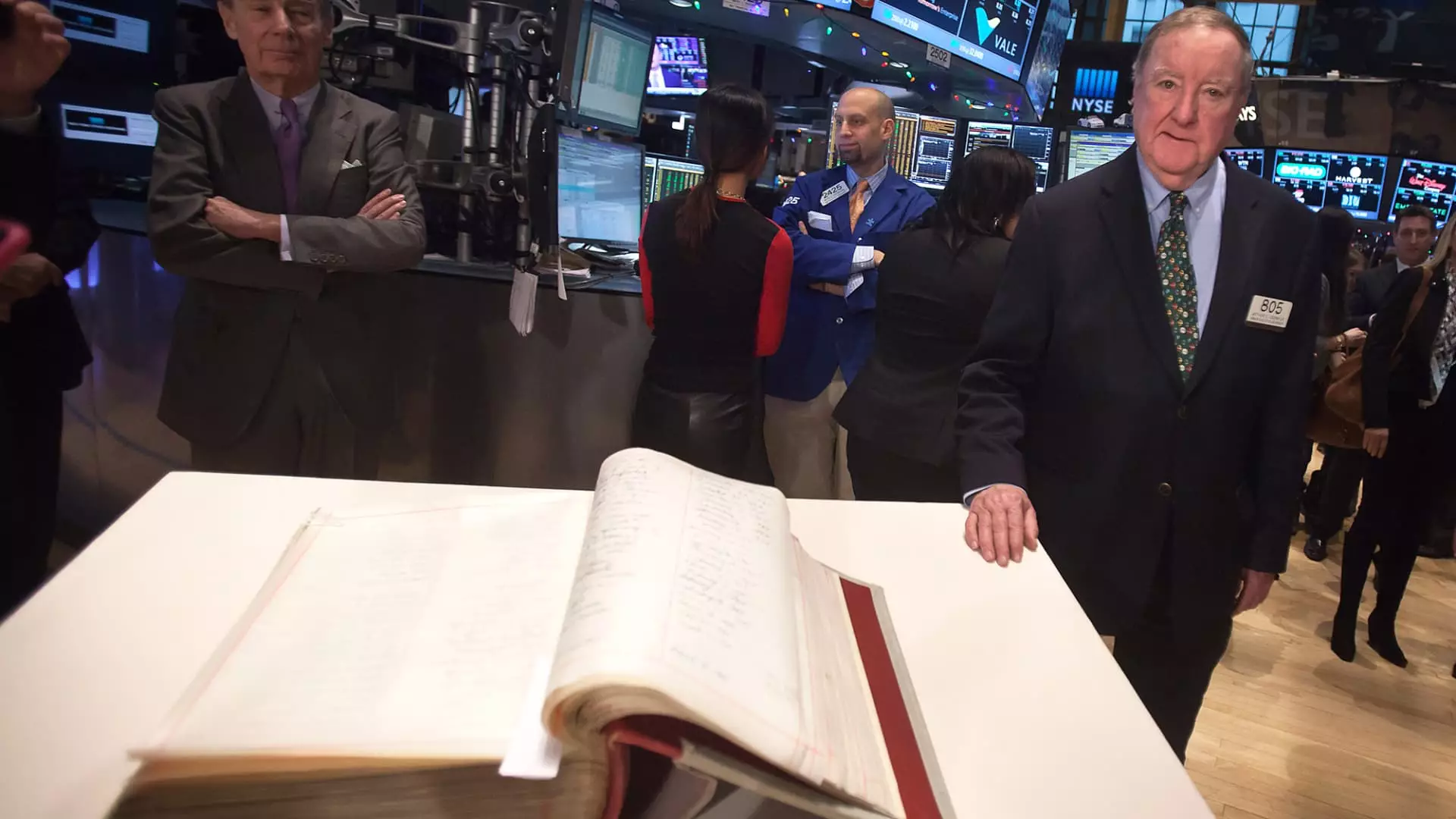The passing of a prominent figure often leaves a void that resonates through various spheres. Art Cashin, the respected director of floor operations at the New York Stock Exchange (NYSE), was more than a financial expert; he was a cultural icon whose annual tradition of composing a New Year’s poem encapsulated the zeitgeist of the financial world and beyond. His recent death has brought forth a poignant tribute penned by his sons, Arthur and Peter Cashin, who honored their father’s unique storytelling ability, channeling the spirit of their father’s legacy into their own homage. The poem serves not only as a reflection of the past year but also as a celebration of Cashin’s lasting influence on family, finance, and society.
In their tribute, Arthur and Peter traverse the events that defined the year 2024, a year marked by uncertainty and tumult. They begin with a palpable sense of trepidation, stating that “Wall Street stopped in fear,” marking the absence of their father’s poetic lens as they attempted to capture the year’s essence. From significant global events, such as the Paris Olympics and the sidelining of leaders like Syria’s al-Assad, to the fluctuations in governance around the world, the poem highlights the tumult of a year that, much like the stock market, teetered on the verge of volatility.
This year was also characterized by political shifts, illustrated with a nod to the transition from the former president (45) to his successor (47). Similarly omnipresent was Wall Street’s bull run, a testament to resilience amid chaos. This juxtaposition between personal and financial upheaval underscores the nuanced relationship between life’s unpredictability and the stock market, a dynamic Cashin understood deeply.
The poem highlights poignant cultural moments and figures who passed away during the year. By celebrating esteemed personalities, from beloved actors like Jim Simons and Bernie Marcus to icons like Whitney Houston, the Cashins invoke a sense of nostalgia, prompting reflection on the collective loss that society endures. These tributes serve an important role, reminding us of the richness of lives lived and the indelible impact of those who shape our cultural and social fabric.
Furthermore, the allusions to other cherished public figures create an intersection of personal loss and societal grief, weaving a tapestry of memory that resonates deeply. The recognition of legendary voices—such as the iconic “You’ve Got Mail”—evokes an emotional resonance, reminding us of the materials and media that have punctuated our daily lives.
While the poem pays homage to various cultural figures, it also holds at its core an intimate reflection on the relationship between the Cashin brothers and their father. The nuances of familial love and loss resonate throughout the lines, culminating in a candid admission of grief intertwined with the celebration of a life well-lived. From the heartfelt acknowledgment of their father’s role as a historian and philanthropist to the personal touch of remembering moments shared over drinks and profound conversations, this tribute encapsulates the essence of camaraderie, love, and the familial ties that bind us.
Art Cashin was not just a figure in finance; he was a mentor, a father, and a comrade who outlined what it meant to live meaningfully. As his sons reflect on their father’s legacy, they poignantly capture that personal connection which transcends the professional accolades often associated with his name.
In concluding their poetic tribute, the Cashin brothers impart valuable wisdom for the new year—a reminder to cherish the living and remember those who have passed. They encapsulate a universal truth: the importance of relationships cultivated throughout our lives. Their hope that “all the best is our wish” resonates deeply, encouraging readers to embrace camaraderie and celebrate daily acts of kindness and remembrance.
As we ring in a new year, the Cashins’ tribute is a testament not only to Art Cashin’s legacy but also a reminder to the public of the interconnectedness of life, love, and the relentless rhythm of time. It encourages us to carry forward the lessons learned, with warmth and resilience, as we navigate the uncertainties that lie ahead. In this way, the Cashins give us all—families, friends, and colleagues—an invitation to honor those we have lost while simultaneously embracing the future with open hearts.

